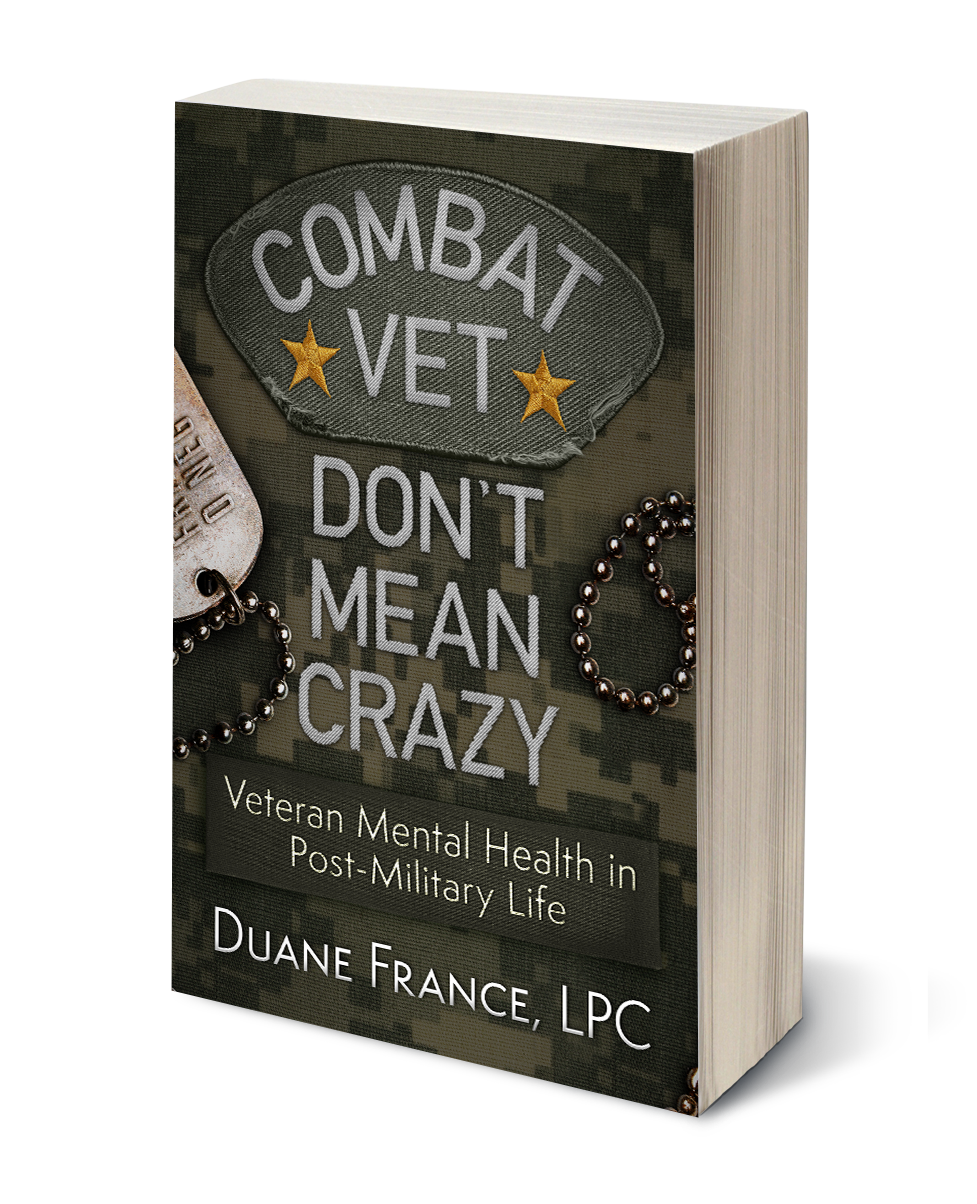
A group of International Security Assistance Force Regional Command soldiers talk at dusk while pulling security in Kandahar, Afghanistan, March 28, 2011.
What you talk about you can control, influence and change – David Osborn
As I was listening to an episode of the Follow Your Different podcast hosted by Christopher Lochhead, I was struck by this statement by his guest. In that context, entrepreneur David Osborn was talking about money. He was referring to the fact that money…how to manage it, how to create it, what to do with it…is often a taboo subject. If we don’t talk about what to do with it, he points out, then we don’t how to control it, we can’t change our behaviors around it, and we are influenced by money rather than the other way around.
The same is true for veteran mental health.
For example, one study looked at over 150 primary care physicians in Rochester, NY. The focus of the study was to determine how often primary care physicians explore the topic of suicide. The researchers discovered that the doctors explored suicide only 36% of the time when seeing clients with depressive symptoms. This is happening while the CDC reports that nearly every state in America has seen a dramatic rise in suicide rates. Does this mean that the doctors don’t care? No, it’s more likely because suicide is something we just don’t talk about.
I hear it a lot from clients that I work with. “I haven’t talked about that in years” or “I don’t think I’ve ever told anyone that.” The problems that we’re trying to solve won’t be addressed if we don’t talk about it.
Not Talking is Avoiding
One of the “problems” when it comes to talking about things is that we then have to acknowledge that they exist. Sometimes the things that we don’t want to talk about are things that we don’t want to admit to ourselves. We have a drinking problem, maybe, or I don’t really feel satisfied with my current job. I don’t want to recognize that my marriage is falling apart. If we don’t talk about it, then maybe we can sort of just pretend it’s not there.
Information avoiding is a way to cope with distressing news, but not an effective one. Recent studies show that individuals will avoid information about an illness or their risk for disease if they’re not comfortable with hearing it. Not talking about it leads to greater consequences than the distress that comes from avoiding the topic, but we still do it. How often do we “go along to get along” in our workplace or our relationships?
Not Talking is Not Defining the Problem
A commonly used form of psychotherapy is Cognitive Behavioral Therapy (CBT). CBT is an intervention that helps individuals modify dysfunctional thoughts, emotions, and behaviors. I have found that veterans especially respond well to CBT; there’s a system, there’s a step-by-step process to challenging our thoughts. The first step, though, is awareness. We have to be aware that we’re having the dysfunctional thought, or that the behavior or emotion is problematic in our lives. If we don’t understand the shape of what we’re dealing with, then we’re not going to be able to impact it in any way.
One of the key elements of CBT is challenging false negative beliefs. Something like “I’m not worth their time” or “I’m fundamentally unlikeable.” We may be thinking it all the time, but until we talk about it, it doesn’t become “real.” I’ve heard veterans say, “Well, now that I say it like that, it doesn’t make a lot of sense. It did in my head, though.” If we can’t describe a problem, then we can’t solve the problem.
Having Unspoken Conversations is Not Communicating
How many times have we thought we were in agreement with someone about a topic, but it turns out that we weren’t? We just kind of assumed that they saw things our way, and they assumed that we saw things their way. Even the closest relationships have off-limits topics. Sometimes this is beneficial, but other times it isn’t. Topic avoidance certainly has a place in our relationships. Depending on the situation, certain things are simply not talked about. We don’t openly address medical or psychological concerns. Employment advice identifies three taboo topics in the workplace: sex, politics, or religion. Agreeing to not talk about certain topics helps us manage the tension between our need for openness with others and our need for privacy and protection.
Sometimes we can take that too far in personal relationships. We have so many off-limits topics that the things we can talk about are limited to sports and the weather. We pick our way through distressing conversations like tip-toeing through a minefield; or, more likely, avoid communicating at all.
Limiting Disclosure
Like with everything else in life, there needs to be balance in what and how much we talk about. The problem here is that we don’t talk about anything when it comes to veteran mental health, but that doesn’t mean that we have to talk about everything. Finding someone that you fell like you CAN talk about anything with is important, while recognizing that you don’t have to tell them everything. Talking about things with others, though, can help to uncover the subjects we’re hiding from ourselves.
Once we talk about these unspoken things, then we can control how we think about them, influence our behavior around them, and change for the better. And that’s never a bad thing.
Do you want to help offset some of the costs of the Head Space and Timing Blog and Podcast? Want to show your appreciation and support? You can put some paper in the tip jar by going here or clicking the button below ![]()
Want to keep up with all of the Head Space and Timing content? Subscribe Here
 Want to learn more about veteran mental health? Check out the latest Head Space and Timing book,Combat Vet Don’t Mean Crazy: Veteran Mental Health in Post-Military Life
Want to learn more about veteran mental health? Check out the latest Head Space and Timing book,Combat Vet Don’t Mean Crazy: Veteran Mental Health in Post-Military Life. Check out what people are saying about it:
Overall ‘Combat Vet Don’t Mean Crazy’ is a very well written, thought-provoking book. As usual, SFC France did a fantastic job! Being a combat veteran myself who has served in both Iraq and Afghanistan, I feel there’s a lot of powerful information and tools in this book that you can put to use immediately – even as you’re reading this book. Definitely an excellent read on those days of rest and/or distress. – J.C.


